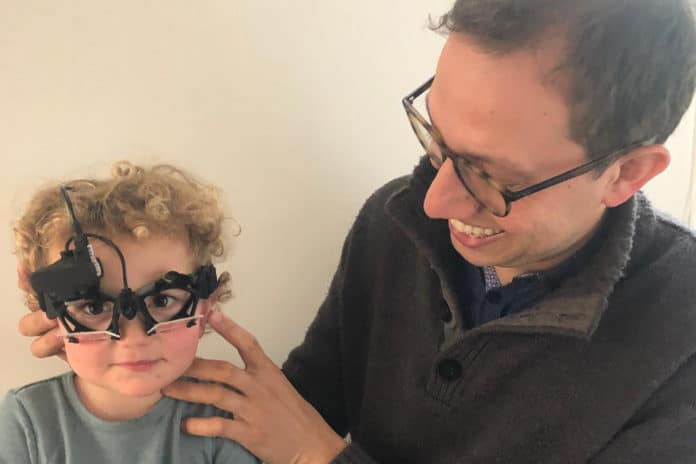Children, especially newborns with hearing loss, need quick actions within the first three to six months so the child has the opportunity to learn language skills. Almost two-thirds of children with hearing impairment also suffer from a balance disorder or disequilibrium.
The main problem arises when children reach age four or five and have trouble with coordination, playing sport, riding a bike, or swimming.
Identifying the situation early could allow for interventions and support to help give these children a better start.
A new project led by the University of Canterbury (UC) School of Psychology, Speech and Hearing Lecturer Dr. Mike Maslin will explore for the first time whether babies with hearing loss could also benefit from being tested for balance problems at an early age.
According to Dr. Maslin, balance has a fundamental role in the development of the central nervous system.
Dr. Maslin said, “Children with disequilibrium might learn to sit and take their first steps around the same time as other children, but as they get older and the demands on their balance system get more complex, they are less able to cope. Balance disorders can have a profound impact on a child’s overall health and development, and on their confidence.”
In this study, scientists will perform a Video Head Impulse Test (vHIT), which looks like a set of goggles, on babies aged between six months and 12 months. These goggles have to be placed on a baby’s head to test for balance disorder within five minutes by tracking their eye movements when their head is moving.
Dr. Maslin said, “the newborn hearing screening program enables children with hearing impairment to achieve equity with other children in reaching language milestones. But those with balance disorder could still be disadvantaged. We want to allow them to achieve parity too because every child matters.”
“The study could be a transformative step towards introducing a balance screening program in New Zealand.”
“If we show the test is effective, we hope it could be introduced for babies who have been fitted with a hearing aid while they’re having a follow-up appointment with an audiologist. I think there will be national and international interest in our results.”
“The study will also use interviews and surveys to explore the impact on parents of being told their young child has a balance disorder, on top of their hearing loss. We want to find out what their perceptions of the test are and how they feel about the information that it provides.”
